
|
|||
QUOTED
|
|||
TOP STORYDesign revealed for 92,000-seat venue to be flagship of 2034 FIFA World Cup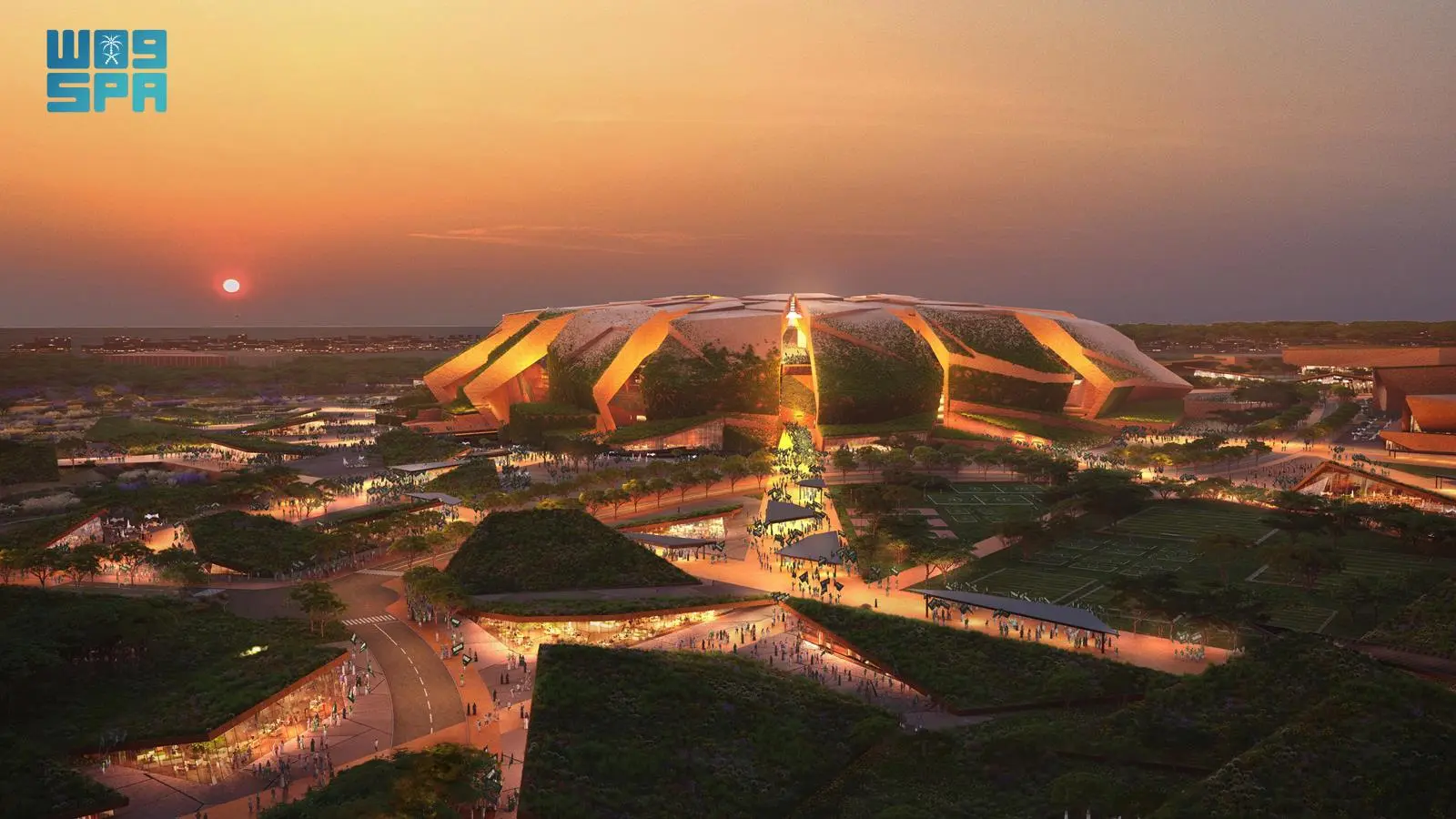
The King Salman Stadium and Masterplan is set to become the largest-capacity stadium in Saudi Arabia and one of the world’s largest sports venues. [more] |
|||
TOP STORYSaudi FM participates in G20 Summit in Brazil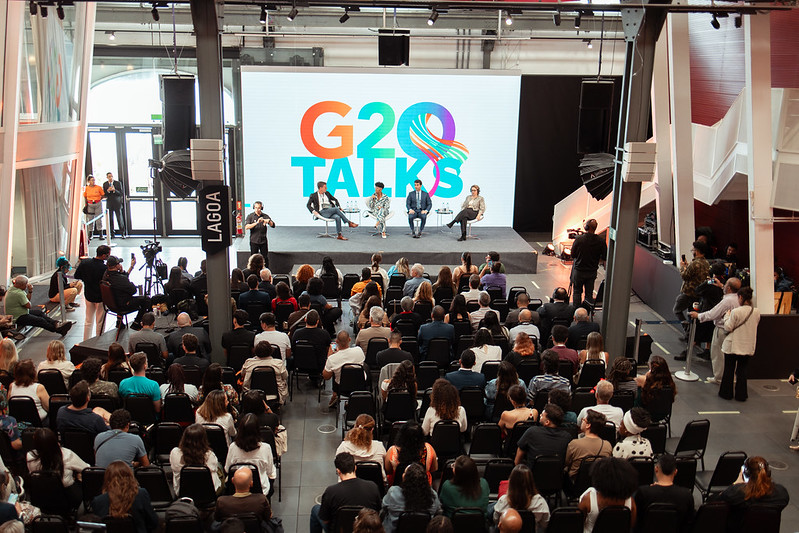
The G20 2024 summit is being held in Rio de Janeiro, Brazil on November 18 and 19 with a focus on the fight against hunger, poverty and inequality; sustainable development and reform for global governance. [more] |
|||
TOP STORYSpike Lee to head Red Sea International Film Festival Jury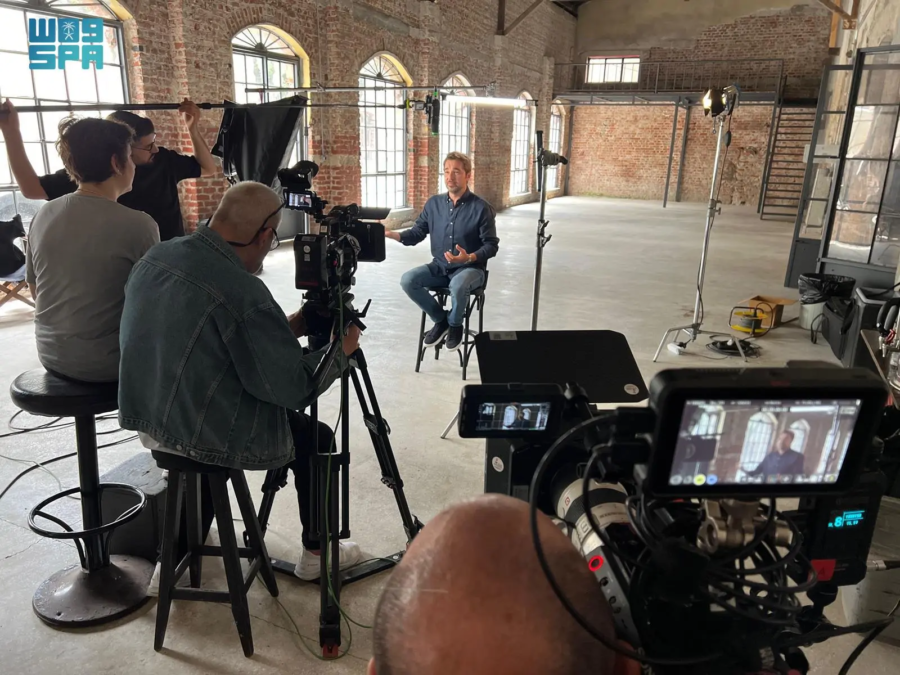
Spike Lee will preside over the jury of the fourth edition of Saudi Arabia‘s Red Sea International Film Festival to be held December 5-14 in Jeddah. [more] |
|||
TOP STORYSaudi has localized about 20% of its military spending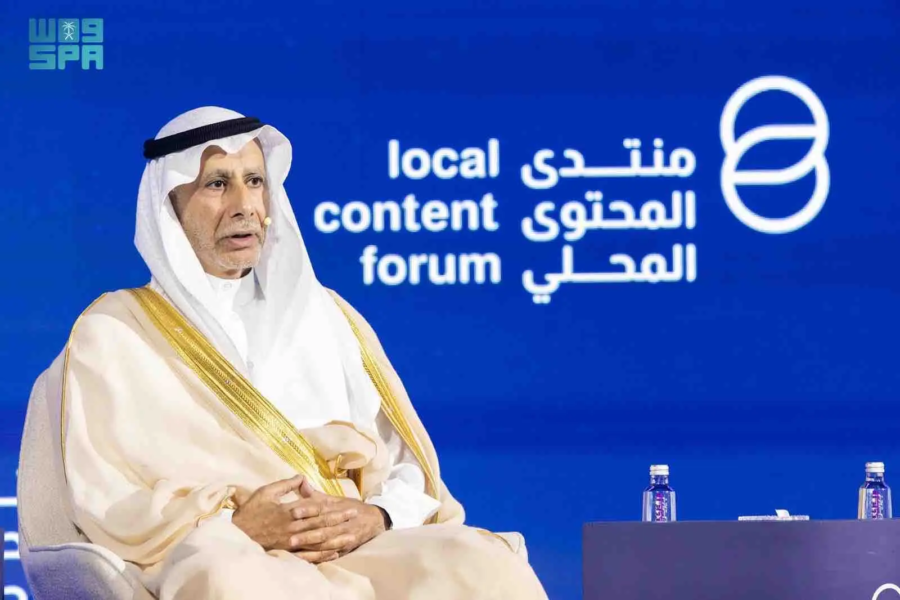
Speaking at the 2024 Local Content Forum just completed in Riyadh, Ahmed Al-Ohali, Governor of the General Authority for Military Industries (GAMI), said Saudi Arabia has localized 19.35% of its military spending. [more] |
|||
TOP STORYMisk Global Forum 2024 underway in Riyadh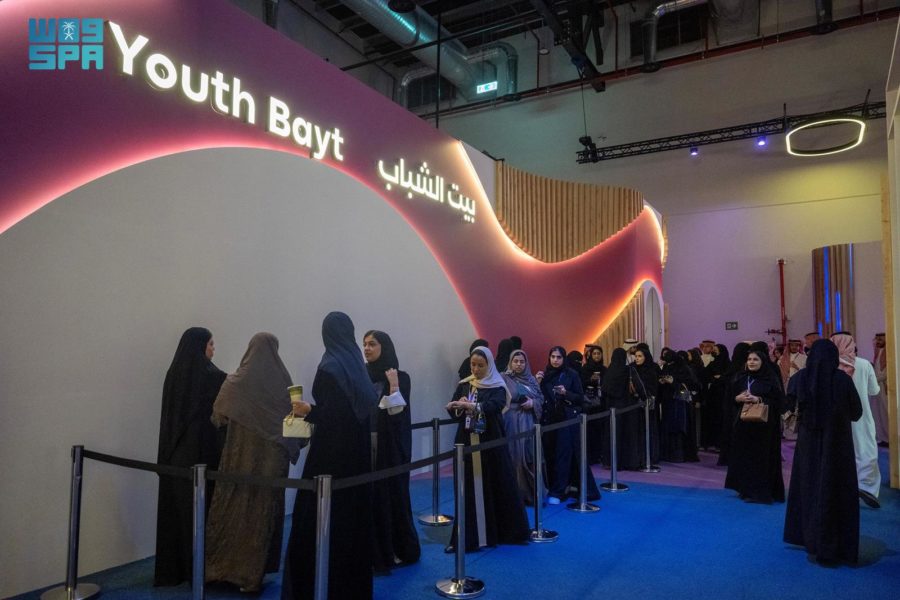
The Misk Global Forum 2024 is taking place November 18-19 in the Mohammed Bin Salman Nonprofit City “Misk City,” centered around the theme: “By Youth for Youth.” [more] |
|||
Commentary: The Saudi Solution? How Riyadh’s Ties to America, Iran, and Israel Could Foster StabilityVia Maria Fantappie and Bader Al-Saif in foreignaffairs.com: To Washington, the Saudi rapprochement with Iran may seem like bad news. U.S. officials, after all, have spent years pushing for Israel and Saudi Arabia to normalize relations. But the United States should welcome Riyadh’s pivot. If Saudi Arabia can forge working ties with both Iran and Israel, the country can play a new and useful role in moderating Middle Eastern tensions. It can act as a broker between competing parties, perhaps putting an end to the current Iranian-Israeli tit for tat. The events of the past year have upended long-standing redlines, deterrence parameters, and traditional rules of engagement among foes, and Riyadh is in a uniquely strong position to midwife a better regional order. |
|||
Diriyah announces multi-billion-dollar art and culture districts as part of $63bn projectin arabianbusiness.com: The Qurain Cultural District is set to become a vibrant global hub where culture meets modern urban living. It will offer a diverse range of arts, retail, office, and residential spaces for people to live, work, shop local brands, and enjoy local dining experiences. Its cultural offerings will include a cinema, museums, and several academies focused on writing, traditional Najdi architecture and mud building, Arabic music, culinary arts, performing arts, and theatre. The district will feature 19 mixed-use buildings, including office, retail, and residences, 10 of which have various boutique office options, and a wide range of retail space and dining venues. |
|||
Commentary: The Saudi Solution? How Riyadh’s Ties to America, Iran, and Israel Could Foster StabilityVia Maria Fantappie and Bader Al-Saif in foreignaffairs.com: To Washington, the Saudi rapprochement with Iran may seem like bad news. U.S. officials, after all, have spent years pushing for Israel and Saudi Arabia to normalize relations. But the United States should welcome Riyadh’s pivot. If Saudi Arabia can forge working ties with both Iran and Israel, the country can play a new and useful role in moderating Middle Eastern tensions. It can act as a broker between competing parties, perhaps putting an end to the current Iranian-Israeli tit for tat. The events of the past year have upended long-standing redlines, deterrence parameters, and traditional rules of engagement among foes, and Riyadh is in a uniquely strong position to midwife a better regional order. |
|||
Commentary: Why Is Saudi Arabia Hedging Its BRICS Invite?Via Oliver Stuenkel and Margot Treadwell in carnegieendowment.org: At the BRICS summit last month, one leader was noticeably absent from the family photo of assembled leaders: Saudi Arabia’s crown prince, Mohammed bin Salman. Over a year after the kingdom was offered membership to the bloc, the invitation remains unanswered, and the crown prince passed on attending the 2024 summit. Instead, the Saudi foreign minister arrived for only the final day of the gathering. For its part, Saudi Arabia is hedging its commitment to a group that itself constitutes a hedging club for other middle powers. The motivations driving its ambiguous strategy deserve a closer look. Saudi Arabia’s assessment is likely influenced by BRICS’s decision to invite Iran, as well as Russia’s aggressive rhetoric and plans to reduce the importance of the U.S. dollar. These moves could transform BRICS into an anti-Western club and jeopardize Saudi Arabia’s economic and security relationship with the United States. Furthermore, the bloc’s inclusion of Iran and the UAE places the countries on equal footing with Saudi Arabia at a time when Riyadh seeks to project itself as the regional leader. |
|||
Commentary: Saudi reforms – the show must go onVia Faisal J. Abbas in arabnews.com: Just to be clear, entertainment, like fashion, is a matter of personal taste. For example, while I would be unlikely to go to events on the MDLBEAST calendar of rave music festivals, I would happily attend a performance at AlUla by the Italian tenor Andrea Bocelli. Others will have other musical interests, or none at all. That is absolutely fine: the beauty of the Vision 2030 reforms is, each to his own. A more profound example is what Crown Prince Mohammed bin Salman told CBS in a 2018 interview: “The decision is entirely left for women to decide what type of decent and respectful attire she chooses to wear” — this is why women across the kingdom today are free to be veiled, don a headscarf, or wear no abaya at all. |
|||
Saudi real estate: Grade A offices hit 98% occupancy as global firms rush inin arabianbusiness.com: Riyadh’s premium office space has reached near-full occupancy at 98 per cent amid an influx of international companies, driving rental values up by 19 per cent year-on-year as Saudi Arabia’s capital cements its position as a regional business hub, according to Savills. More than 120 foreign companies, including Goldman Sachs and Frost & Sullivan, have relocated their regional headquarters to Riyadh this year, fuelling a surge in demand for high-end office space, the property consultant said in its Q3 2024 market report. Technology, media and telecommunications firms led the leasing activity, accounting for 40 per cent of new occupancies, followed by consulting and consumer goods companies at 20 per cent each, the report showed. |
|||
Aramco to Borrow More and Focus on Dividend Growth, CFO SaysVia Nina Trentmann in yahoo.com: Distributions by the state-owned company are a key element of the kingdom’s finances, which have wobbled this year as Crown Prince Mohammed Bin Salman pushes his ambitious economic transformation plan. The company has strained its balance sheet in 2024, flipping to a net-debt position for the first time in two years, as it pays out a massive dividend. “You’ll see us do a couple of things. One is just take on more debt compared to use of equity,” Chief Financial Officer Ziad Al-Murshed said in an interview in Boston. “It’s nothing to do with the dividend, it is optimizing our capital structure so that we end up with a lower weighted average cost of capital.” |
|||
Number of Saudi workers in private sector hits 2.34mn, up 35% in five years: Minister saysin arabianbusiness.com: In absolute terms, the number of Saudi workers in the private sector reached 2.34 million currently from 1.7 million in 2019, Minister of Human Resources and Social Development Ahmed Al-Rajhi said. Chairing a panel discussion at the Riyadh Economic Forum on Tuesday, the minister, however, said there has been a decline in the overall unemployment rate to 3.3 per cent in the second quarter of 2024, compared to 5.6 per cent in the same period in 2019. “The unemployment rate among Saudis dropped to 7.1 per cent in Q2 2024, compared to 12.3 per cent during the same period in 2019,” Al-Rajhi said. |
|||
Saudi Startup Riyadh Air Gets Over 2,500 Slots At Riyadh AirportVia Rytis Beresnevičius in simpleflying.com: Filings by Airport Coordination Limited (ACL), a slot coordinator that manages over 75 airports in the world, have showed that Riyadh Air has received over 2,500 slots at Riyadh King Khalid International Airport (RUH). According to the slot coordinator’s initial coordination report, airlines had requested a total of 97,130 slots at the airport serving the Saudi Arabian capital, with ACL allocating only 38.7% of the newly requested landing and takeoff rights for the upcoming International Air Transport Association (IATA) summer season, which will begin on March 30, 2025. Nevertheless, with its slot portfolio, Riyadh Air became the fourth-largest airline at the airport, with 2% of the total allocated flight movements. SAUDIA, the flag carrier of Saudi Arabia, will have the largest share of movements, 50.9%. |
|||
Perspective: Middle East looks to Saudi Arabia to rein in Donald TrumpVia Andrew England in ft.com: After Trump named a number of ardently pro-Israeli nominees and Iran hawks for key positions, Arab officials worry his incoming administration might approve any moves by Israel to annex the occupied West Bank, occupy Gaza or escalate tensions with Tehran. But they hope Riyadh can temper the incoming administration’s policies in the region by leveraging Crown Prince Mohammed bin Salman’s relationship with Trump, the president-elect’s appetite for financial deals and his expected desire to strike a “grand bargain” that would lead Saudi Arabia and Israel to normalise relations. “The key player in the region is Saudi Arabia because of their known relations with him, so it will be the linchpin of any regional actions the US might decide to do,” said an Arab diplomat. |
|||
EFG Hermes launches $300 million Saudi Education Fund, acquires Britus Educationin wamda.com: EFG Hermes, an EFG Holding company and the leading investment bank in MENA, announced today that its private equity arm has launched a $300 million Saudi Education Fund (SEF) with the target of building an institutional world-class K-12 operator in the Kingdom of Saudi Arabia. SEF aims to capitalise on the clear market opportunity that is evidenced by the growing student population in private schools, which is expected to more than double in line with Saudi’s 2030 vision targets and the critical need for strong operators to cater to such growing demand. |
|||
First EU-GCC Summit Charts Course for Strategic PartnershipVia Leonardo Jacopo Maria Mazzucco in agsiw.org: On October 16, the European Union and the Gulf Cooperation Council held their first-ever summit. The meeting in Brussels, Belgium gathered leaders and representatives of the two organizations and respective member states at a critical juncture in the interinstitutional relations between the two blocs. The GCC region has rarely topped the EU strategic agenda. However, the acknowledgment of the growing interdependency between the two blocs showcased by global crises, such as the coronavirus pandemic and Russia’s war on Ukraine, and the rising diplomatic role of the Gulf Arab countries in global affairs have prompted Brussels to step up political engagement with the GCC. From a Gulf standpoint, the renewed resolve of GCC countries to diversify partners in a world order tilting toward multipolarity, coupled with the reconciliation after the 2017-21 Gulf crisis, has injected new life into the GCC project, strengthening the bloc’s standing as a meaningful institutional interlocutor. |
|||
Saudi builder delivers homes to 1,000 people. Millions await.Via Sarah Dadouch in semafor.com: ROSHN — a company wholly owned by the Saudi sovereign wealth fund the Public Investment Fund — is tasked with building around 400,000 new homes around the country by 2030, part of a nationwide goal of boosting Saudi home ownership to 70% by the same year. The developer is changing the face of the capital by building up the northern part of Riyadh — or as many call it, the “New” Riyadh — into a glitzy, modern version of itself featuring integrated communities that include schools, as well as entertainment and commercial districts. ROSHN’s projects aim to house more than 2.2 million people by the end of the decade. |
|||
Trump’s oil and gas friendly energy secretary pick seen as fantastic in Middle EastVia Lauren Holtmeier and Herman Wang in spglobal.com: US President-elect Donald Trumps selection of oil industry veteran Chris Wright as energy secretary will likely be welcome in the Middle East where hydrocarbons dominate its economies, with one Saudi government official describing the nomination to S&P Global Commodity Insights on condition of anonymity as fantastic. Wright, whose nomination to head the Department of Energy was widely reported Nov. 16 in the midst of the COP29 UN climate change summit, is CEO of oilfield services firm Liberty Energy, which has extensive operations in hydraulic fracturing. He is a climate change skeptic who has called net-zero plans sinister. |
|||
G20 talks in Rio reach breakthrough on climate finance, sources sayVia Jake Spring and Lisandra Paraguassu in reuters.com: Diplomatic tensions over global warming spilled over into the G20 summit negotiations in Brazil this week, with sources saying the 20 major economies reached a fragile consensus on climate finance that had eluded U.N. talks in Azerbaijan. Heads of state arrived in Rio de Janeiro on Sunday for the G20 summit and will spend Monday and Tuesday addressing issues from poverty and hunger to the reform of global institutions. The talks must now also grapple with how to address escalating violence in Ukraine after a deadly Russian airstrike on Sunday. |
|||